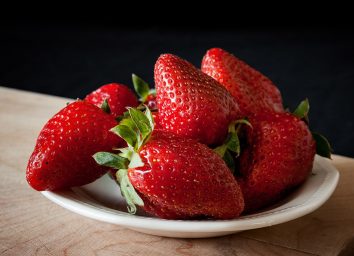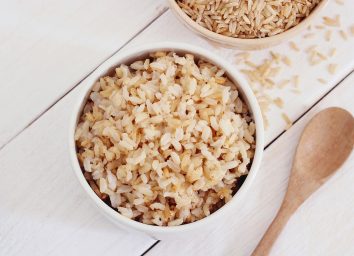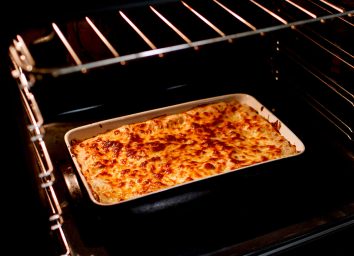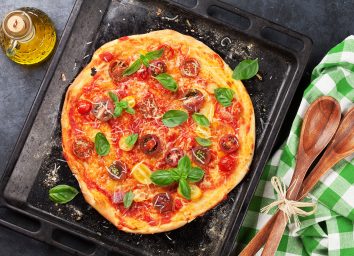7 Common Foods You’ve Been Storing Wrong Your Entire Life
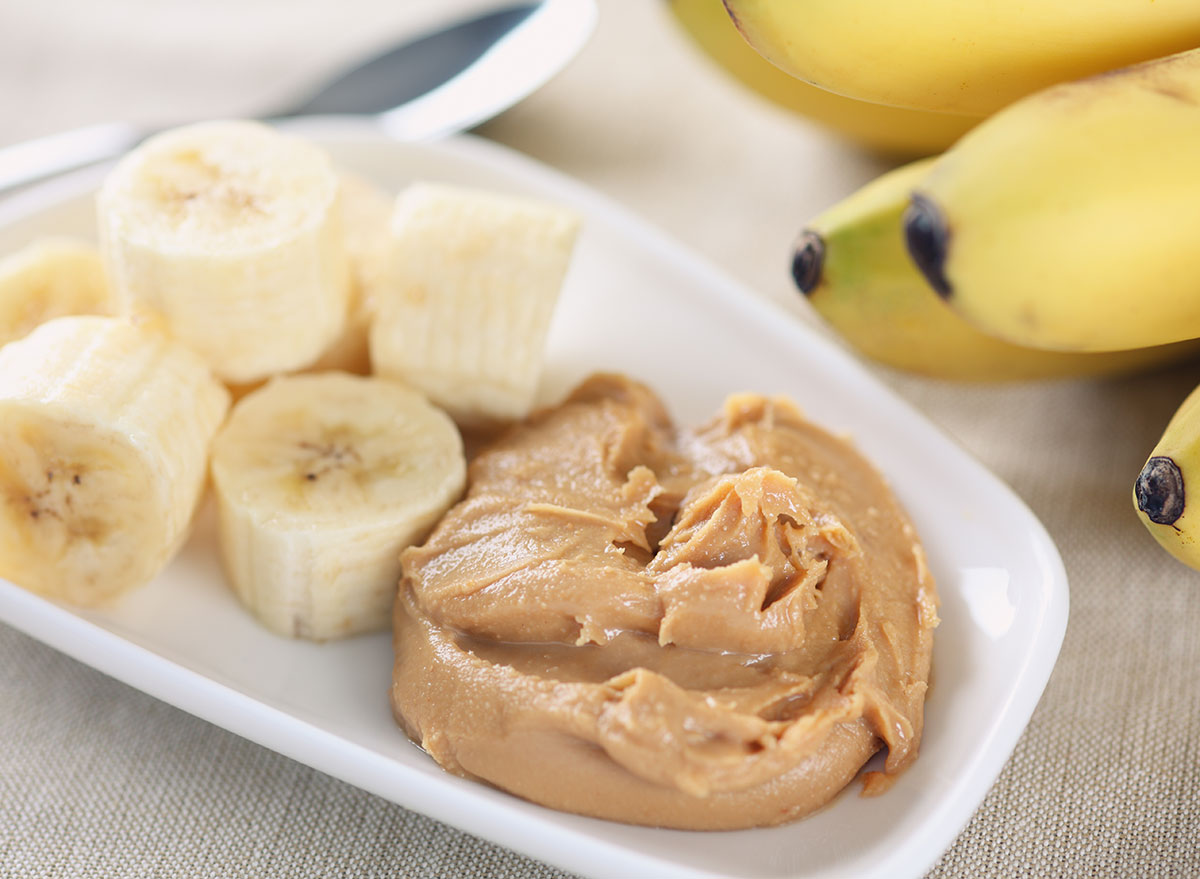
There’s nothing worse than going to grab a slice of bread just to uncover that it has mold on it. You thought you were storing it the right way, so what’s the culprit here? Well, sorry to break it to you, but there’s a good chance you’ve most likely been storing foods all wrong in your kitchen. And during a time like right now when you’re not food shopping as often, you want to make sure you’re doing all you can so your food stays fresher, longer.
Here, we break down some kitchen staples that are most often not being stored the correct way so you know what to do. And for more, check out these 15 Classic American Desserts That Deserve a Comeback.
Peanut butter
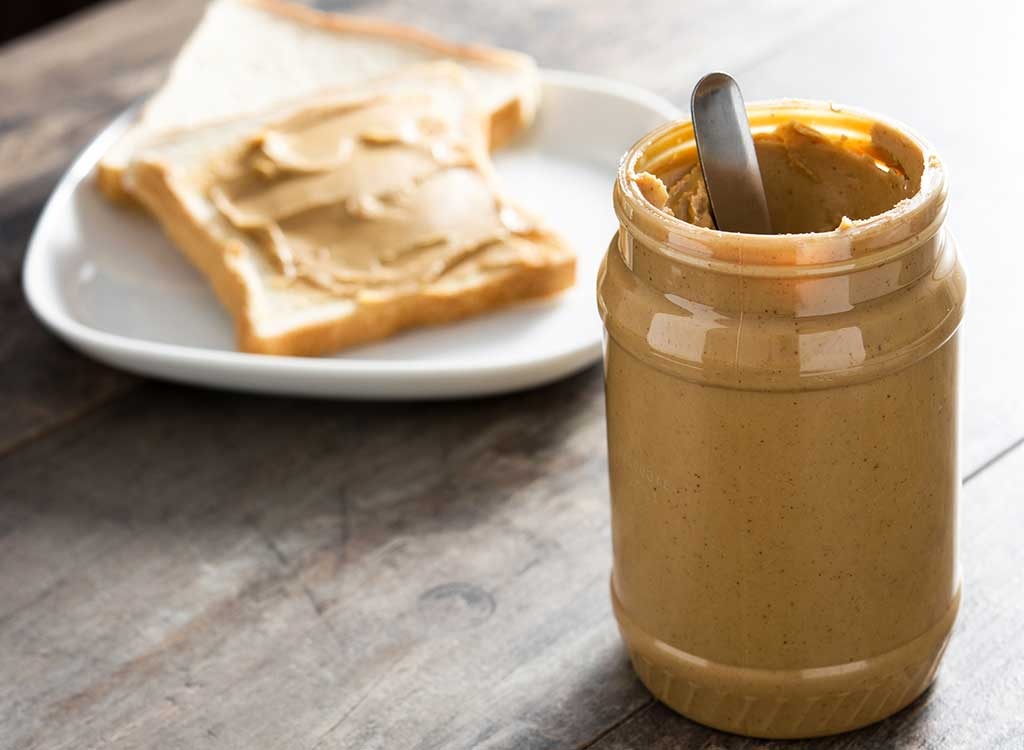
Peanut butter is a pantry staple, but keeping it right-side-up isn’t ideal. That’s right: Your best bet is to store that jar of peanut butter upside down, especially if it’s natural peanut butter.
Because natural peanut butter consists of just peanuts and sometimes a bit of salt instead of a ton of added hydrogenated oils, you’ll notice oil floating at the top. This oil separation is completely fine, but you’ll have to do some stirring before you start scooping it out. Placing the jar pantry upside down in your pantry will help evenly distribute the oils, avoiding that pool that would typically form.
And if you want to stay informed on all things pandemic-related, be sure to sign up for our newsletter to get the latest coronavirus foods news delivered straight to your inbox.
Bananas
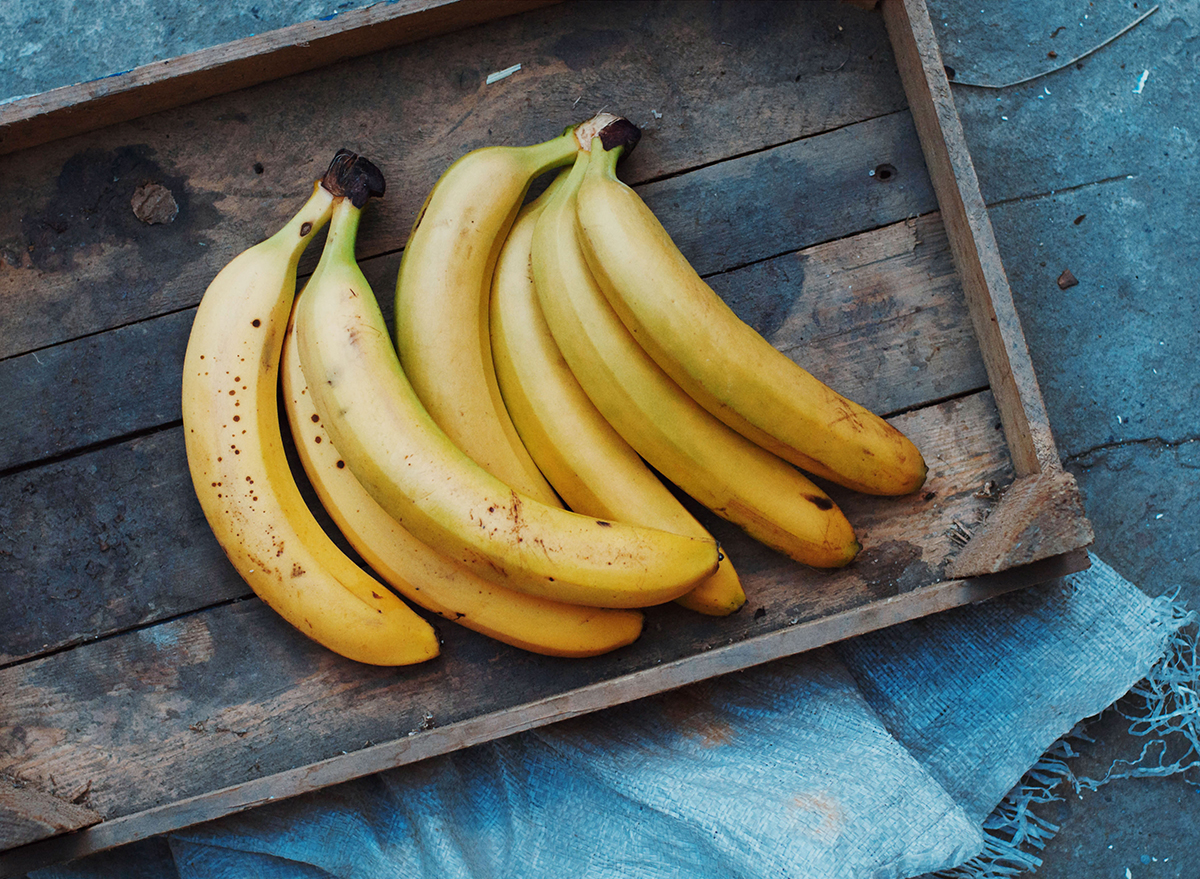
Do you typically place that bunch of bananas in a basket on your counter and break each one off when you want to eat a banana? Prepare to have your mind blown as the best way to store bananas when they’re still in their respective peels is on the counter with the stems wrapped, away from each other.
See, keeping bananas away from each other and your other produce is the best bet, as they produce high amounts of ethylene gas, and keeping them in close proximity to each other will just speed up the ripening process.
Bread
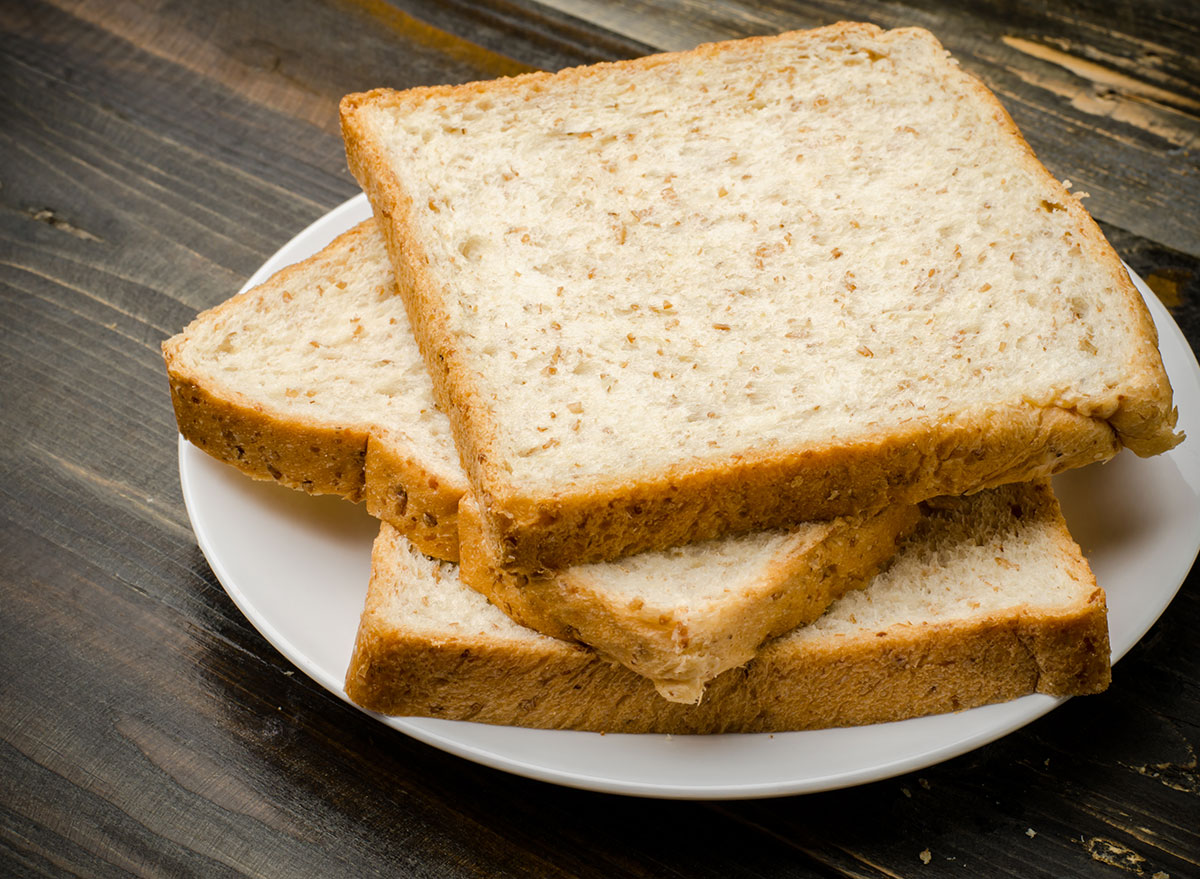
Nope, you don’t need to keep that load in the fridge like you always thought! You should keep your loaves stored on the counter, tightly wrapped and out of the light, or inside of a bread box. If your counter gets a lot of exposure to sunlight and you don’t have a bread box, though, you can store the tightly wrapped bread in the pantry where it’s dark and room temperature.
Only opt for freezing your bread if it’s the type that is meant to be frozen like Ezekiel bread, or you know it’s going to take you a while to eat it all. If you’re thinking of trying out a homemade bread recipe, be sure to avoid these mistakes every beginner makes when baking bread.
Coffee

If you’re currently storing your grounds or beans in the refrigerator or freezer, it’s time to relocate them—to the pantry, of course! The best way to store coffee is in an airtight container at room temperature. Keeping coffee in the fridge can alter the flavor, as it actually absorbs odors from its environment, so your coffee will start to take on the flavors of what it is surrounded by. No thanks!
Tomatoes

Tomatoes are another food that doesn’t need to be in the refrigerator if that’s where you always stored it once you’re home from the grocery store. Instead, keep tomatoes out of the fridge and stored in a cool, dry place at room temperature, away from sunlight.
Butter

Now, this one is a bit shocking, but you don’t actually have to store butter in the refrigerator. A report from the FDA explains that pasteurized, salted butter is actually safe to keep out on your counter at room temperature as the likelihood of butter spoiling is low. Butter can be stored in either the fridge or on the countertop, but it does not need to be refrigerated for safety purposes like you might’ve thought.
Fresh-baked cookies
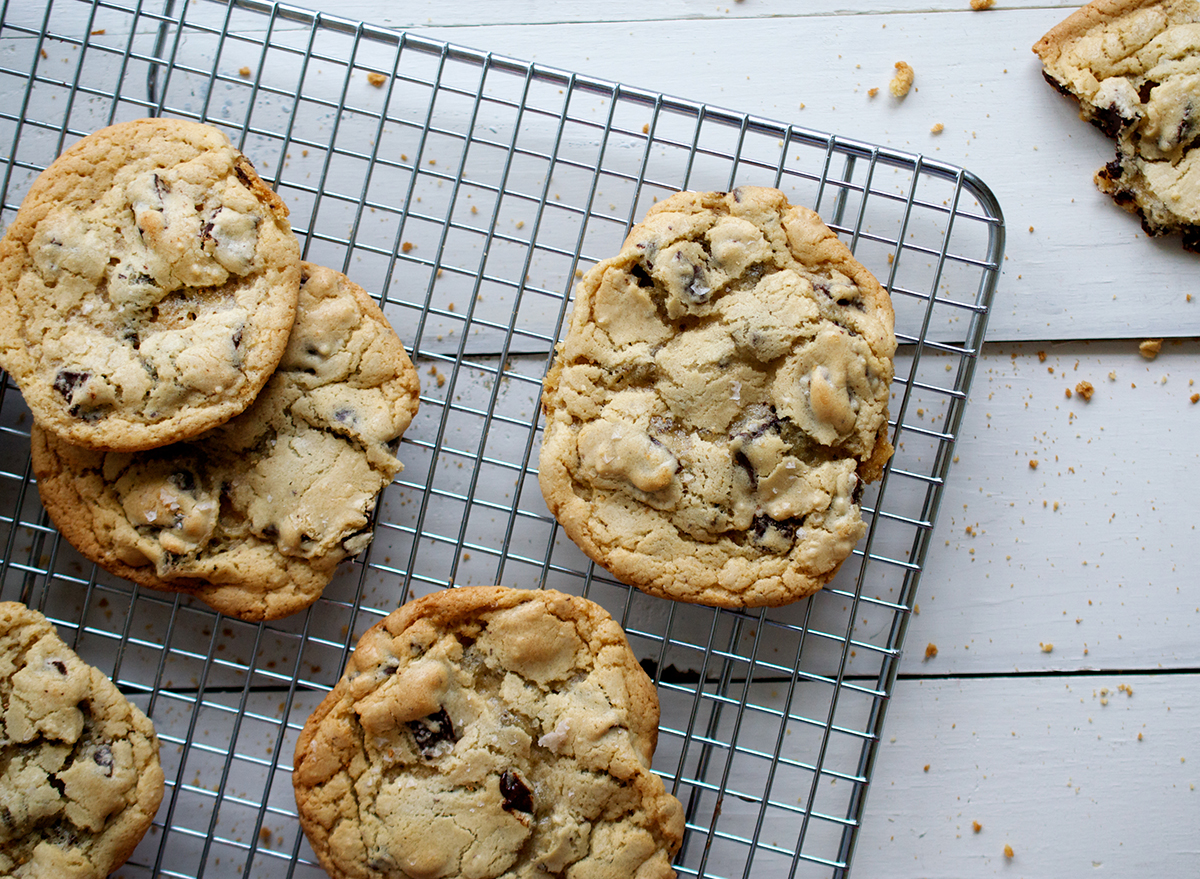
There’s a good chance you’re baking more now that you’re living the quarantine life, so you want these cookies to last right? Well, keeping them in a Ziploc bag and calling it a day isn’t the move. Instead, you want to store those homemade cookies in a sealed air-tight container with parchment between the layers and a slice of white bread in the container. Yes, you read that right, a slice of bread!
Why exactly is that? The moisture from the bread will help keep the cookies soft. It’s a hack you never knew you needed—until now, that is.
For more, check out these 108 most popular sodas ranked by how toxic they are.
